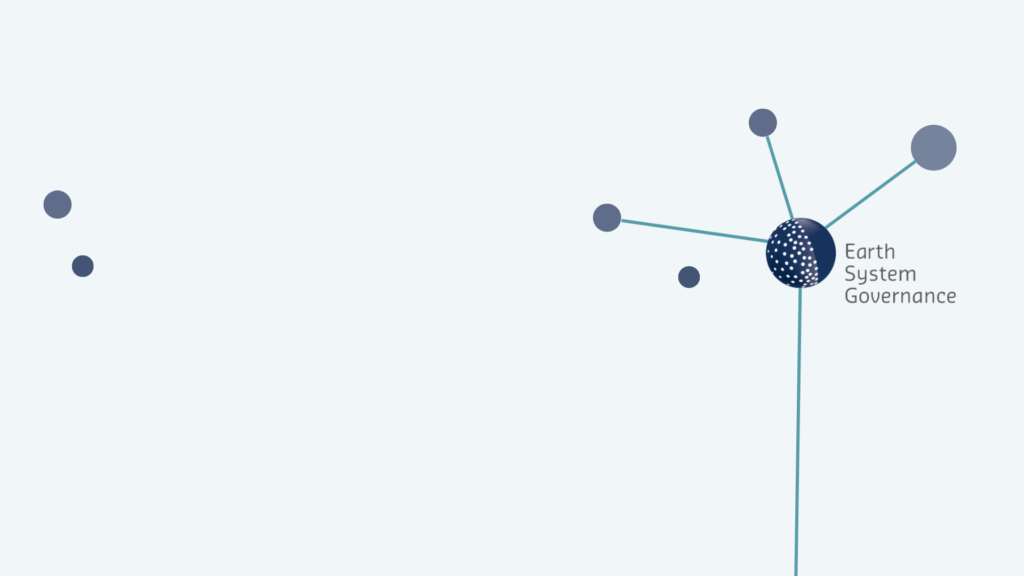From the 22-27th October 2023, the Radboud Conference on Earth System Governance took place in Nijmegen, The Netherlands. The conference was organized with the Radboud Centre for Sustainability Challenges (RCSC) and served as part of the University’s celebrations of its 100-year anniversary. The theme: “Bridging Sciences and Societies for Sustainability Transformations,” took centre stage throughout the preparations and execution of this year’s conference as the research community gave particular attention to inter- and transdisciplinary collaboration.
This event would not have been possible without the support of the following hosts, co-hosts, and sponsors.
The ESG Project would like to thank everyone who supported and attended to make this the largest-scale event in the longstanding tradition of ESG Conferences. A special thanks goes to conference co-chairs Prof. Ingrid Visseren-Hamakers and Prof. Birka Wicke, as well as Dr. Sander Chan and Dr. Cristina Inoue of Radboud University.
Below, you can find some facts and figures about the conference, a YouTube Playlist of recordings of the plenary and semi-plenary sessions, as well as a gallery of photos.
Participation
This year’s conference on Earth System Governance attracted a total of 678 participants from over 45 different countries.


The conference was organized in a hybrid format, enabling participants from around the world to engage in sessions both in-person and virtually.
Programme
A total of 91 panels, featuring 420 presentations, were organized, covering a diverse range of topics related to environmental governance. Almost a third of these panels were chaired by early career researchers.


Furthermore, 40 innovative sessions were held, with many of them fostering collaboration among scholars from different disciplines and/or practitioners. This aligned with the conference theme, ‘Bridging Sciences and Societies for Sustainability Transformations,’ emphasizing a focus on inter- and transdisciplinarity.
6 semi-plenary sessions were organized by the Radboud Conference Co-hosts (the German Institute of Development and Sustainability, the Institute for Environment and Sustainability (IES), National University of Singapore, PBL Netherlands Environmental Assessment Agency, the Dahdaleh Institute for Global Health Research at York University, Future Earth and The Earth Commission).
The full programme of semi-plenary sessions is available here.


Before the start of the main conference, two days were dedicated to South-South Dialogues and Early Career Researchers. These events attracted more than 100 participants.
#ESG2023 featured exclusively vegan and low-waste options for refreshments, lunches, the evening reception, and the official conference dinner. Through these actions, the organizing team highlighted the possibility of animal-free catering.


This year, 20 scholars from middle and lower-income countries could avail of fee waivers, travel and/or accommodation subsidies thanks to the support provided by co-hosts and sponsors.
Videos
#ESG2023 Closing Plenary
The closing plenary reflects on insights generated throughout the conference on ...its main theme: bridging societies and sciences for sustainability transformations.
It discussed the draft Nijmegen agenda for transformative inter- and transdisciplinarity, for which the 2023 Radboud Conference has provided the foundation. The Agenda is meant to inform the implementation of the Earth System Governance Project’s Science and Implementation Plan in the upcoming years.
Panelists
- Prof. Sarah Burch, University of Waterloo, Executive Director of the Waterloo Climate Institute
- Prof. Aarti Gupta, Wageningen University and co-chair of the ESG Scientific Steering Committee
- Sandra Pellegrom: Dutch National Coordinator for the SDGs
- Dr. Inaya Rakhmani, Director Asia Research Centre, Universitas Indonesia
Prof. José Sanders. Rector, Radboud University
This panelists were asked to critically examine transdisciplinarity, emphasizing how it may not inherently lead to transformative impact. Panelists examined distinct roles played by disciplinary, multi-, inter-, and transdisciplinary approaches in various academic pursuits. This inquiry extends beyond theory, exploring the practical implications these approaches have on universities, including research, pedagogy, and their broader societal contributions.
So, what are the implications for the Earth System Governance network and conferences in this light? This discussion culminated in exploring the strategic path outlined in the forthcoming Nijmegen agenda, aiming to provide a clear roadmap for effectively leveraging transdisciplinarity within the research community.[+] Show More









Many thanks to our volunteer team, who captured photos across the six days of events. You can view all photos categorized by day and type of session in the shared google drive. A general selection is available in the gallery below.
Credits: Ines Van Bavel, Michael Davies-Venn, Nathália Almeida, Inge Dekker, Cristiana Cannata and Thomas de Jong.



























































